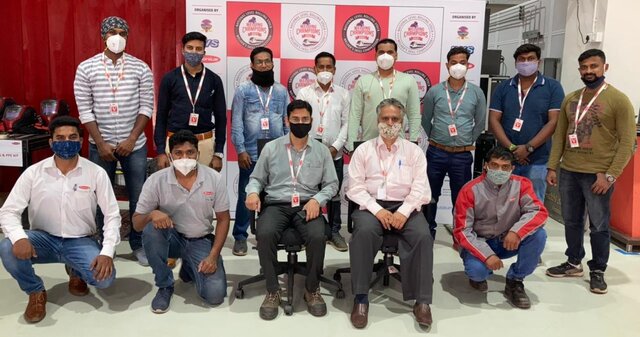
“Whenever a student asks a question, it becomes a great learning experience for any trainer”, says Mr. Satish Keskar, International Welding Technologist, who adds on to say “because, now, the students have a huge access to information”.
As part of our interview series in association with Fronius India, with experts from the field of welding, we conversed with Mr. Satish Keskar, International Welding Technologist, to understand the continuously evolving role of a welding trainer, their career path, and the importance of upskilling and reskilling. Read on to know more or you can also watch the video interview on our YouTube channel, for which the link is given below.
Q: What is the importance of training in the professional lives of welding trainers?
A: Earlier welding training was only about operational instruction, supervisors, and shop-floor managers. But now, in the era of skill development, many companies came up with the idea of upskilling the welding trainers with the help of classroom training and hands-on training, to help them excel in their careers.
Q: Could you elaborate on the need for upskilling and reskilling for the welding trainers?
A: Though classroom training is very important. a welding trainer must not limit himself/herself only to hands-on training. As virtual welding training and simulation-based training are picking up, welding trainers must keep themselves updated on these technologies. This kind of training also saves raw material and consumer costs. They must also have digital teaching skills and be able to use digital tools.

Q: Are welding trainers/instructors at academic institutions like ITIs competent as per today’s requirements? What do you think?
A: Definitely there is a gap. Previously, while I was assessing welding trainers who are the instructors on behalf of IIW India, I noticed that even though they had the knowledge, there was a knowledge gap in terms of latest technologies, latest standards in qualifying welders, welding procedures, etc. Academia should impart training to the trainers and help them in keeping themselves updated.
Trainers who have about 15-20 years of experience should come forward to be trainers. Additional to this, trainers must acquire soft skills, classroom training, and virtual training. They must associate themselves with digital technologies and tools. Welding training is one of the basics of nation-building, it is going to go in a big way in the future.
Q: What is the importance of industry experience for welding trainers?
A: Since a majority of the trainers do not have industry experience, they are not acquainted with new machines, new technologies and therefore end up being associated only with the academic environment. Academia should arrange for frequent industry visits and keep themselves updated. They have to be technically sound and computer-savvy.
Read more from Fronius India: https://nationalskillsnetwork.in/fronius/
Q: What is a good career path for a welding trainer?
A: Any person who wants to become a welding trainer has to get themselves updated with the latest happenings in this field. They must be aware of what is happening outside India, how technology is changing, variations of machines in India. Only then, they will be able to deliver it to students. Whenever a student asks a question, it becomes a great learning experience for any trainer, as students now have more access to the information, as this experience grows, they go on to become Senior Trainer and Master Trainer.













